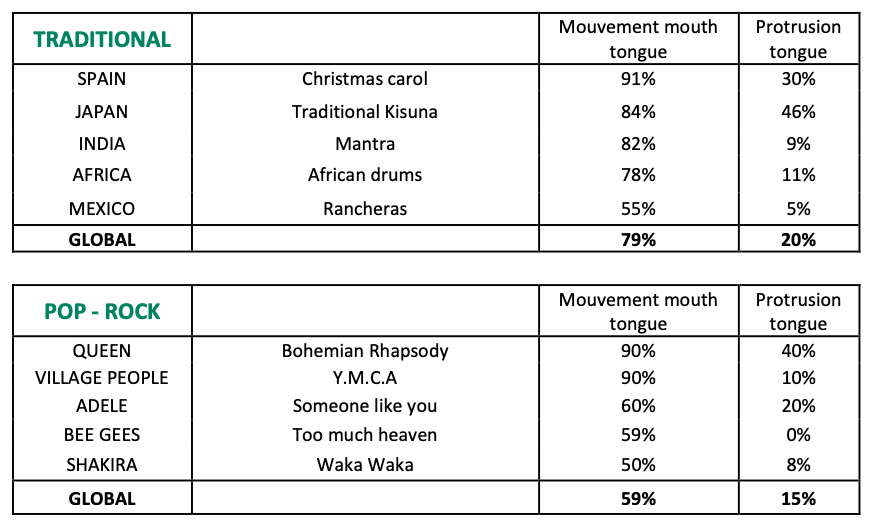It is a common belief that it is useful to listen to classical music during pregnancy, as it will have a good effect on the child in the future. We decided to check if there is scientific evidence for this belief.
Not only numerous people write about the benefits of classical music during the period of intrauterine development sites And forums, dedicated parenthood. Information about this can be found on the website UNICEF, metropolitan maternity hospital at the State Clinical Hospital named after. S.S. Yudina, as well as some Media. On various musical websites Can even meet special ones collections with music for pregnant women. Typically, the list of recommended works includes works by Mozart, Bach and Vivaldi. Some non-core sites report that in utero Can form certain musical preferences and even reward the unborn child with absolute pitch.
To begin with, let us agree that the text will use official terminology: an embryo or fetus is an organism up to the ninth week of intrauterine development, a fetus - from the ninth week until the moment of birth, from the moment of birth - a child or baby. The quotations given in the text will not always reflect the correct terminology, about which a note will be made in parentheses.
The body begins to perceive sounds quite early. Hearing organs are being formed from the ectoderm - the outer germ layer. From approximately the 16th week the fetus starts hear sounds - both internal (the mother’s heartbeat, the sound of her peristalsis) and external. Experts in perinatal development advise starting to talk out loud with your unborn child from this moment on. From the 21st week (mid-second trimester), the fetus begins not only to hear, but also react to external sounds. And in the third trimester you can use CTG notice change in heart rate in response to a sharp sound. Thus, in principle, scientists have no doubts about the presence of hearing in the fetus during intrauterine development.
Finnish scientists conducted experiment, proving that music listened to in utero remains in the child’s memory after birth. In the third trimester, pregnant women regularly listened to the same composition, and it was played to their children at the age of four months. Babies who heard this song before birth responded to it more actively than the control group of babies who heard this music for the first time.
Spanish scientists researched, which compositions cause fetal movement most often: Mozart’s “Little Night Serenade”, Christmas carols and “Bohemian Rhapsody” by Queen were in the top.


And the director of the Research Institute of Obstetrics and Gynecology named after. Otta Eduard Aylamazyan at the same time notes, that not all classical music is created equal: “Some pieces, such as Shostakovich’s Seventh Symphony, can create unnecessary anxiety. During pregnancy, we can recommend listening to the violin, cello, flute, duduk and, of course, the organ. Of course, we can recommend the works of Bach, Handel and, of course, Mozart.”
Researchers also notedthat melodies with a descending melodic line (from G of the second octave to E of the first octave) calmed down both the fetus and the newborn, slowing down the heartbeat, and melodies with an ascending line (from G of the first octave to B of the second octave), on the contrary, activated it. To make the scientists’ words more clear, you can listen to the song of the group “Nautilus Pompilius” as an example of a descending line. "To Eloise", and as an ascending one - Queen of the Night's aria from the opera “The Magic Flute” by Mozart.

However, all these studies focused only on fetal physical activity. There are not many experiments regarding the influence on the intellectual sphere. Scientists from Airlangga University (Indonesia) held comparative experiment on rats. Pregnant animals were played different music: Mozart, modern jazz, blues or rock. From the 10th to the 19th day of pregnancy (in total, rats bear offspring for 21–24 days), the females listened to compositions of a certain genre for an hour. The fetuses were then aborted, and the scientists counted the number of brain cells in the unborn rats. The group in which mothers listened to Mozart showed a statistically significant increase in the number of nerve cells in both hemispheres of the brain. Of course, a corresponding experiment on humans is impossible due to its unethicality.
It is also worth noting that there is no direct relationship between the number of nerve cells and intelligence. Scientists are still not found confirmation that prenatal listening to classical music has a statistically significant effect on the child’s later intelligence level. No also confirmationthat music can be used as a therapeutic therapy, since all the changes in the fetal body caused by it are not predictable enough and the effects are long-lasting.
All this suggests that listening to music in the prenatal period certainly does not go unnoticed by the fetus, but it is unlikely to significantly improve its intellectual abilities. True, you shouldn’t give up music either. Study showedthat music has a significant positive effect on the woman herself, significantly reducing the incidence of postpartum depression in mothers.

Most likely not true
Read on the topic:
- Is it true that Soviet athletes were forced to get pregnant in order to get into peak shape for competitions?
- Is it true that frogs have been successfully used to determine pregnancy?
If you find a spelling or grammatical error, please let us know by highlighting the error text and clicking Ctrl+Enter.






